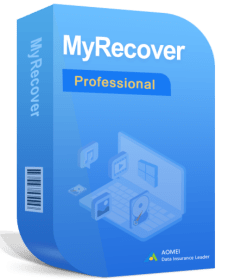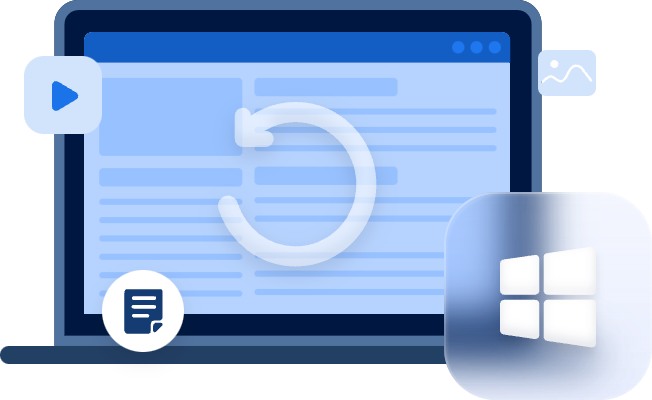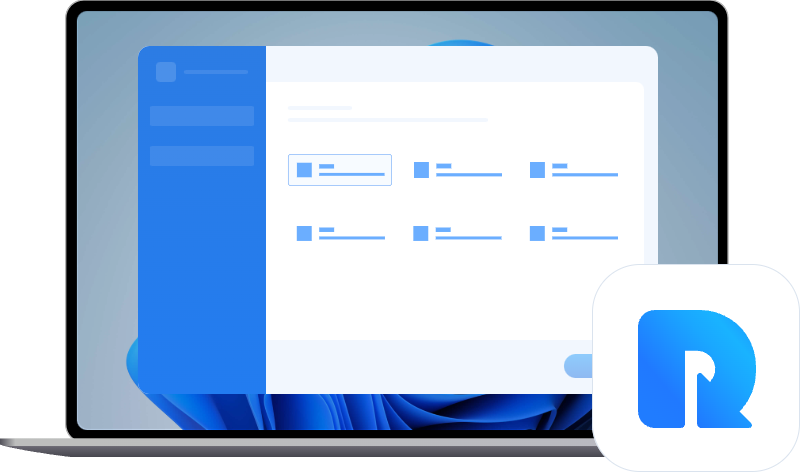Disk Drill Review & Detail: Is It Good Enough?
In this Disk Drill, you will get to know detailed information about Disk Drill: pros, cons, key features, and even a nice Disk Drill alternative.
In this comprehensive Disk Drill review, we delve into the primary features of this data recovery software, explore its supplementary capabilities, dissect the recovery process, and assess various factors to determine its overall value.
For those operating Windows systems, Disk Drill Data Recovery may already be a familiar name, serving as a reliable solution to save your data from data loss predicaments over many years.
Recently, CleverFiles, the brains behind this versatile data recovery tool, rolled out the latest iteration, Disk Drill for Windows 5.
This updated version not only enhances data scanning and retrieval capabilities but also boasts an improved user interface.
If you're new to the field of data recovery software, we recommend perusing our comprehensive guide on the subject. Now, let's dive into an exploration of the application's features to help you determine its suitability for your needs.
Disk Drill Data Recovery Reviews
Disk Drill is your go-to solution for the recovery of deleted or missing files from a variety of sources recovering from PCs, HDD, SSD, USB drives, SD cards, or digital cameras.
It offers the flexibility to scan entire drives or specific partitions, all within an intuitively designed user interface. Scan results are neatly categorized into two folders: Deleted or lost files and Existing files.
Users also have the option to selectively recover specific data types. Typically, the scanning process takes between 10 to 50 minutes, depending on the volume of files. While scanning is underway, you can apply filters and preview files to expedite your search.
In some instances, filenames may be lost, but the majority remain intact.
Key Highlights of Disk Drill include:
- User-Friendly Interface
- Powerful Data Recovery Capabilities
- Supplementary Data Protection Tools
Pros & Cons
◆ Pros:
Offers a full-resolution preview for scanned data.
Provides 500 MB of free data recovery capacity in the free version.
◆ Cons:
Premium pricing with no refund policy.
Step-by-step Guide to Use Disk Drill
Let's now embark on a journey to set up Disk Drill on your PC and run through a few scenarios for media recovery:
1. Upon launching Disk Drill, select your hard disk for scanning.
2. Initiating the search for lost data, click on the corresponding button to commence scanning for your deleted or lost files.
3. Once the scan concluded, you can use the filter, swiftly locating and previewing the lost files.
4. Subsequently, hit the Recover button, designating a new folder for saving the files. Given that the files were recovered from drive D, please opt for another drive to prevent any risk of file overwrites or corruption.
5. Within minutes, the process wrapped up, leaving my precious photos safe and sound in the new folder.
Exploring Alternatives to Disk Drill
While Disk Drill proves its mettle, its price tag may raise eyebrows for some users. Among the myriad alternatives to Disk Drill, MyRecover emerges as a top contender, owing to its comprehensive feature set, user-friendliness, and cross-device compatibility.
MyRecover relies on advanced scanning methods, boasting a high success rate in data recovery. Its user-friendly interface ensures a hassle-free experience. You can trust it to recover deleted and missing files from various sources, including HDDs, SSDs, USB drives, and SD cards, etc.
Unique Features:
- Support to recover over 200 file formats.
- Preserves the original formats, filenames, directories, and sizes of non-overwritten files post-recovery.
- Allows for precise file filtering and preview during scanning.
Limitations:
- MyRecover does not extend support to Mac and Linux operating systems.
Wondering how to recover deleted data without backups? For those who have inadvertently deleted files from their local hard drives, MyRecover presents an effective solution, particularly for users who lack regular backup practices.

- Recovers over 200 file formats, encompassing images (JPG, PNG, DNG, NEF, etc.), videos (MP4, MOV, AVI, etc.), MS Office files, WPS files, folders, compressed files, websites, and more.
- Employs 2 advanced scanning methods, allowing you to filter and preview your desired files based on filename, file format, saved path, storage size, deletion date, and more.
- Maintains the original file format of recovered files.
- Offers broad compatibility, supporting Windows 11, 10, 8, 7, and Server PC, as well as 4 file systems (NTFS, FAT32, exFAT, and ReFS).
Don't hesitate to download MyRecover on your Windows system to reclaim your deleted files today!
Step 1. Install and launch MyRecover, then hover the mouse over the drive containing your desired files before the data loss incident. Click Scan.
Step 2. MyRecover will automatically execute Quick Scan and Deep Scan to detect all recoverable files on your chosen drive.
During the scan, you can filter and preview your desired files by criteria such as Filename, Document Type, Path, Size, Date, and more.
- Name: Enter the relevant filename of your needed files to quickly locate them.
- Date modified: Set the date (today, yesterday, last 7/30 days, etc.)
- Size: Set the file size (<128KB, 128KB~1MB, 1MB~512MB, etc.)
Step 3. Within the Deleted Files/Recycle Bin/Other Missing Files folder, select the files you wish to recover and click Recover x files.
- After recovering data from your hard drive, store the retrieved files on a different drive rather than the original hard disk location.
- If you require recovery of a substantial volume of deleted and missing files from any storage device, consider upgrading your MyRecover.


